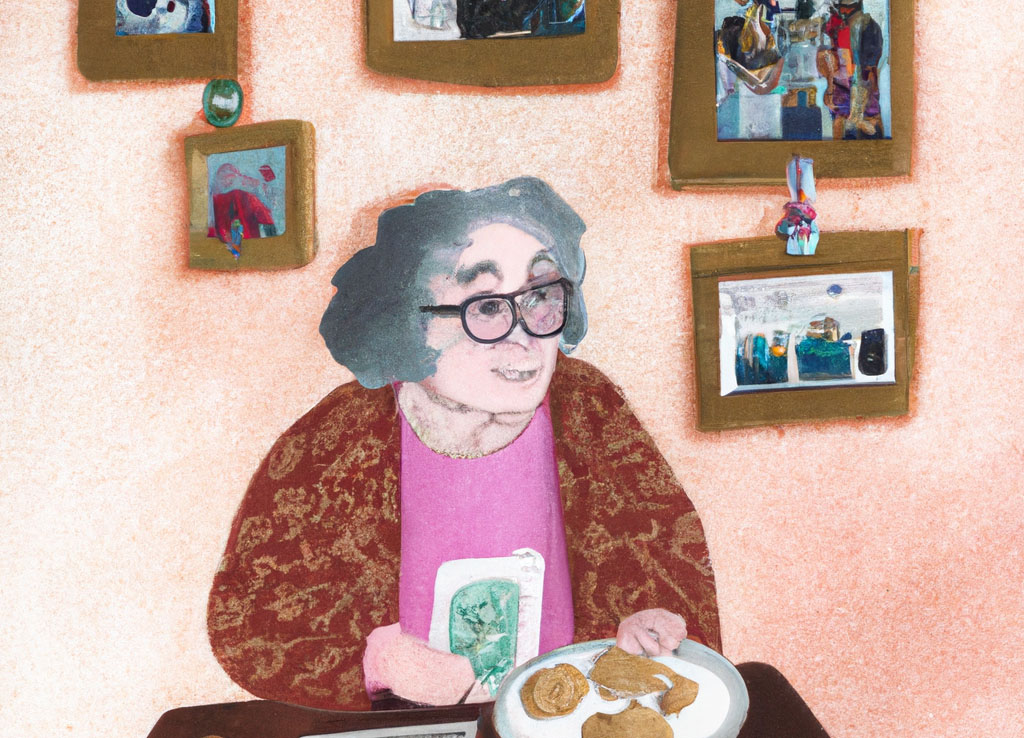
Don’t Let Your Mom’s Dementia Make You Lose Your Mind.
Words by Eric Klein, CSA, BCPA, CPRS
When Emma called my CarePatrol office, it had been a year since her mom, Margaret, was diagnosed with dementia. The once vibrant woman had become a shadow of herself, and the care burden fell squarely on Emma’s shoulders. Every day was a test of patience and love as Emma tried to balance her mom’s needs with her own life. Emma found herself at a crossroads, facing the agonizing decision of whether to continue caring for mom at home, or place her in a memory care community.
Emma’s world had changed dramatically since her mom’s diagnosis. The mom and daughter were always close and they shared a special bond. Emma did not hesitate to move mom into her home when it became apparent that she could no longer manage by herself. As a single mom with a young daughter, Emma had to balance motherhood, a demanding job, and the responsibilities of being a full time caregiver. The mental and emotional stress was taking its toll, and Emma told me “I’m on the edge of losing my mind.”
When I met with Emma and Margaret in their home, Margaret was looking comfortable at the kitchen table eating cookies. There was a bulletin board full of family pictures that gave me insight into years of wonderful family memories. I commented that mom had beautiful blue eyes. Emma said that when she now looked into those eyes, all she saw was confusion. She looked at mom and said “I love my mom, but don’t know how much longer I can do this on my own.” Margaret was lost in her own world. She simply kept smiling and eating cookies.
Emma poured out her heart. She felt it was her responsibility to take care of mom. Mom made her promise that she would never put her in a nursing home. Keeping mom at home meant providing her with the comfort of familiar surroundings, but it also meant constant supervision which was exhausting and Emma could no longer provide. A memory care community offered the specialized help mom needed, but she could not bring herself to make that decision.
We discussed the many benefits of a memory care community including specialized programming, experienced caregivers, a safe environment and medication management. I recalled the positive experiences of the many families I work with in similar situations. We also discussed the outcomes of families that chose to keep their loved ones at home and the impact of those decisions. Listening to these experiences, Emma realized she was not alone in her struggle.
Emma was starting to feel emotionally overwhelmed. She asked, “if this was your mom, what would you do?” I took out a piece of paper and wrote “Don’t Let Your Mom’s Dementia Make You Lose Your Mind.” She pinned it on the kitchen bulletin board. We also discussed what mom may experience as the dementia progressed, support services for adult kids of parents with dementia, and the different memory care options available. I arranged tours of communities and we visited them together. Emma cried during the tour when she saw the other memory care residents. She also smiled when she saw residents lounging in the courtyard, participating in therapy, and best of all eating cookies at the kitchen table – mom’s favorite thing.
The day mom moved into the memory community was tough for Emma. She watched mom settle into her new room, surrounded by staff members that welcomed her with open arms and made her feel special. Over the next several days, Margaret’s confusion began to wane as she settled into the new community routine. Emma knew it was the best decision for mom’s well-being.
Emma didn’t lose her mind. Instead, she found peace and clarity. With mom’s care now in capable hands, she could focus on her own well-being and spend quality time with her daughter and friends. The care burden was lifted and the connection with her mom remained strong. She was back to being a daughter, not a caregiver. Margaret had made the difficult decision, one filled with love and sacrifice. In the process, she found a way to preserve her own well-being and the memory of the vibrant blue-eyed woman who filled her kitchen bulletin board with so many amazing memories.
________________________________
Aging and finding appropriate care in today’s healthcare environment can be overwhelming. There is no one size fits all solution for senior care. At CarePatrol, our job is to help you navigate these situations and find the solution best suited for your family.
We understand what you are going through, and no one is better at helping seniors and their families deal with the realities of aging than CarePatrol. If you need free help finding care for a senior, your family may benefit from Eric’s senior living expertise, and access to assisted living, memory care and in-home care options.
You can reach Eric Klein, CSA, BCPA, CPRS at (847) 653-1212 • [email protected]
